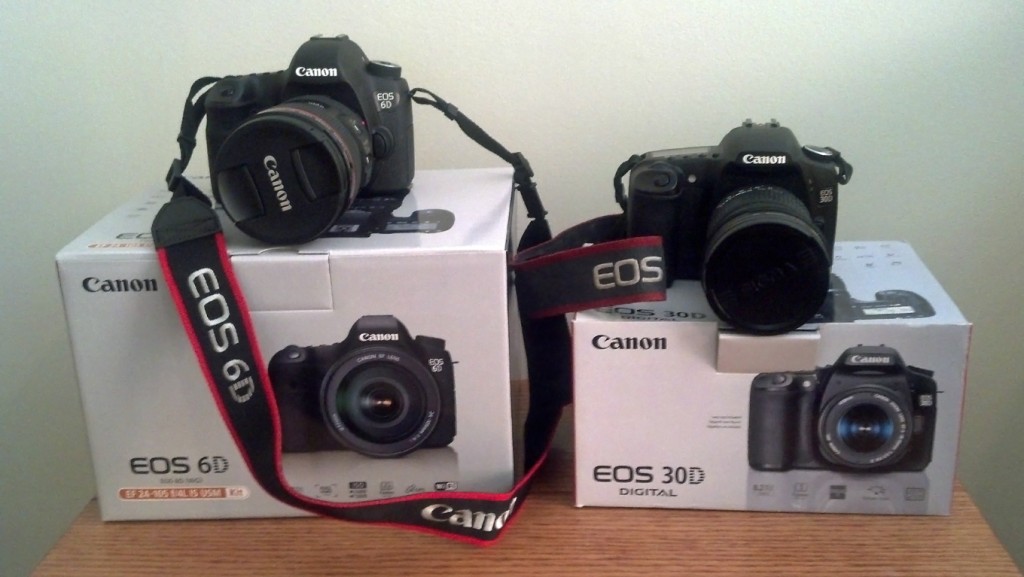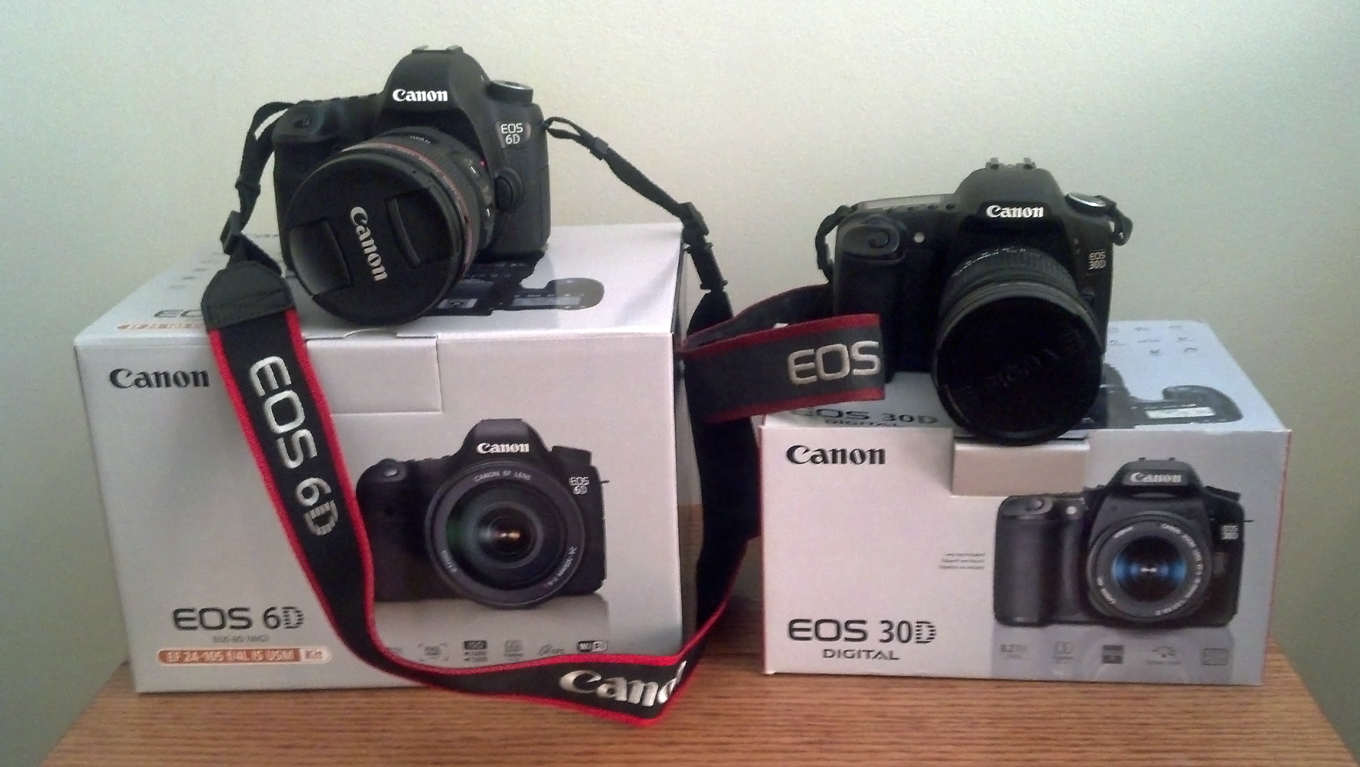
I must say compared to my old Canon EOS 30D and its Sigma 17-70mm F2.8 DC Lens, my new EOS 6D and its Canon 24-105mm F4L Lens are a technological tour de force. Overall, I’m quite pleased with my purchase. I’ve been breaking it in taking pictures of the things we’re listing on eBay and Craigslist as we continue to shed everything we own in preparation for our global trek. Here are some initial observations:
First the image quality is amazing. Thanks to the built-in lens aberration correction algorithms you always get a perfectly squared off picture every time. The typical curling (or rounding) and darken of the corners caused by the light falloff on the periphery of wide angle lens and chromatic aberrations along subject lines caused by a lens’ characteristics are automatically corrected for all Canon Lens, leaving you a properly proportioned picture with perfectly plumb corners as flat and true as a table top. This was previously only available as a post processing step in Photoshop CS6.
On my old 30D I became a big fan of the Automatic Bracket Exposure (AEB) feature. It takes 3 different exposures in succession of the same picture. When combined with speed shutter it gives you a quick burst of 3 pictures. Initially I used it to speed up taking pictures in continuously varying lighting situations while on vacation. You see while most spouses want their partner to take breath taking pictures that make them look beautiful, they seldom have the patience to wait around while we fiddle with our cameras, when we’re supposed to be paying attention to them. So I saved time on vacation in exchange for hours of pouring through 3 times as many pictures when I got home. Years later I learned of High Dynamic Range (HDR). HDR allows you to combine the best elements from each exposure into one perfectly exposed picture. This is commonly used to compensate for backlit subjects and stained glass windows. While I’m happy my 6D still supports AEB and now provides built-in HDR capability, I’m disappoint it can’t do both at the same time. I’ve been told I need to upgrade to the EOS 5D Mark III to get that feature.
The built-in Wi-Fi is convenient, especially since I need to buy a new card reader that supports my new exFAT formatted 128GB SD card. I can easily copy photos to my PC or smartphone, as well as, remotely control the camera (no need to buy an expensive wireless remote). However, I did have a problem connecting my iPad V1 to my camera using Canon’s iPhone app. Canon’s app could not find my 6D on the network when trying to make a connection like it had successfully done on my PC and Android phone. That’s a shame, because the iPad would have been very convenient for previewing pictures as I was taking them. I don’t know if this is a general bug with the iPhone app or just a problem running it on the V1 iPads.
Check back for more of my observations as I continue to familiarize myself with the features of my new 6D..




